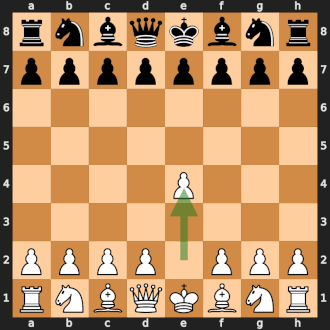
Back Turochamp Byelorussian Turochamp German Turochamp French Turochamp Italian Turochamp Russian Turochamp Chinese
| Turochamp | |
|---|---|
| Developer(s) | Alan Turing, David Champernowne |
| Genre(s) | Computer chess |
| Mode(s) | Single-player |
| This article is part of the series on |
| Chess programming |
|---|
 |

Turochamp is a chess program developed by Alan Turing and David Champernowne in 1948. It was created as part of research by the pair into computer science and machine learning. Turochamp is capable of playing an entire chess game against a human player at a low level of play by calculating all potential moves and all potential player moves in response, as well as some further moves it deems considerable. It then assigns point values to each game state, and selects the move resulting in the highest point value.
Turochamp is the earliest known computer game to enter development, but was never completed by Turing and Champernowne, as its algorithm was too complex to be run by the early computers of the time such as the Automatic Computing Engine. Turing attempted to convert the program into executable code for the 1951 Ferranti Mark 1 computer in Manchester, but was unable to do so. Turing played a match against computer scientist Alick Glennie using the program in the summer of 1952, executing it manually step by step, but by his death in 1954 had still been unable to run the program on an actual computer. Champernowne did not continue the project, and the original program was not preserved.
Despite never being run on a computer, the program is a candidate for the first chess program; several other chess programs were designed or proposed around the same time, including another one which Turing unsuccessfully tried to run on the Ferranti Mark 1. The first successful program in 1951, also developed for the Mark 1, was directly inspired by Turochamp, and was capable only of solving "mate-in-two" problems. A recreation of Turochamp was constructed in 2012 for the Alan Turing Centenary Conference. This version was used in a match with chess grandmaster Garry Kasparov, who gave a keynote at the conference.